How To Eat Sustainably On A Budget
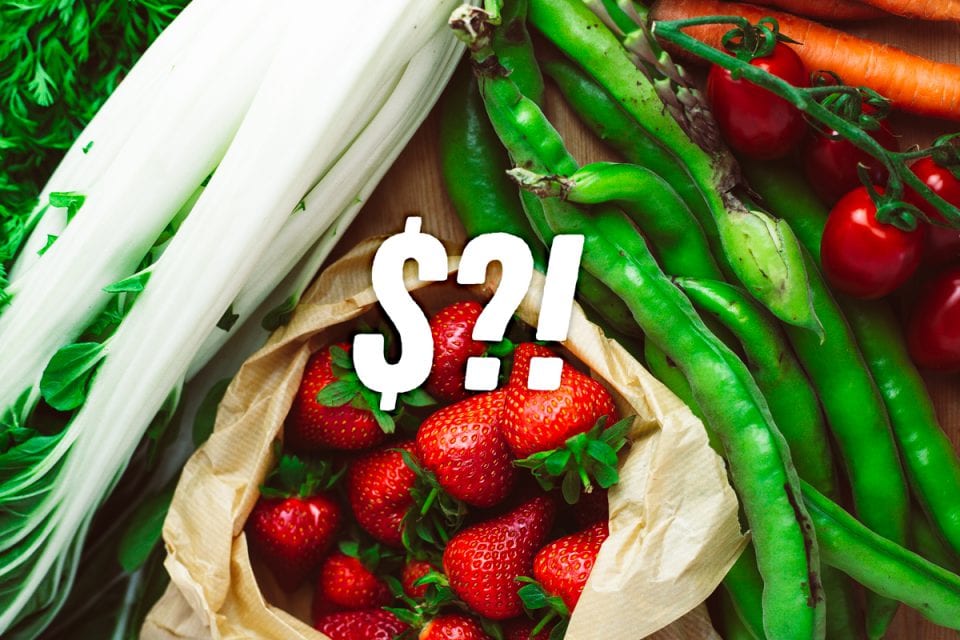

I’m going to let you in on a little secret of mine – eating sustainably is actually cheap… I know right, pretty crazy. The truth is, eating sustainably can be super duper expensive if you do it wrong. Most people believe that eating sustainable means you need invest in a fancy diet comprised of artisan meat substitutes and rare fruits and vegetables. The reality is that a sustainable diet is more akin to what the poorest of the world eat. In this article I outline seven strategies that will help you navigate sustainability fact from fiction. You’ll be eating green on a budget in no time at all.
Reduce Your Meat And Dairy Consumption
Cutting out meat and dairy is the single biggest thing you can do to eat more sustainably. I won’t bore you with all the details of why, but, in short, livestock requires much more energy to rear, kill and process than plant-based equivalents. Just think of all the processes and energy that go into creating a steak – rearing a cow from birth, culling the animal, processing the meat, packaging, refrigeration, you get the picture.
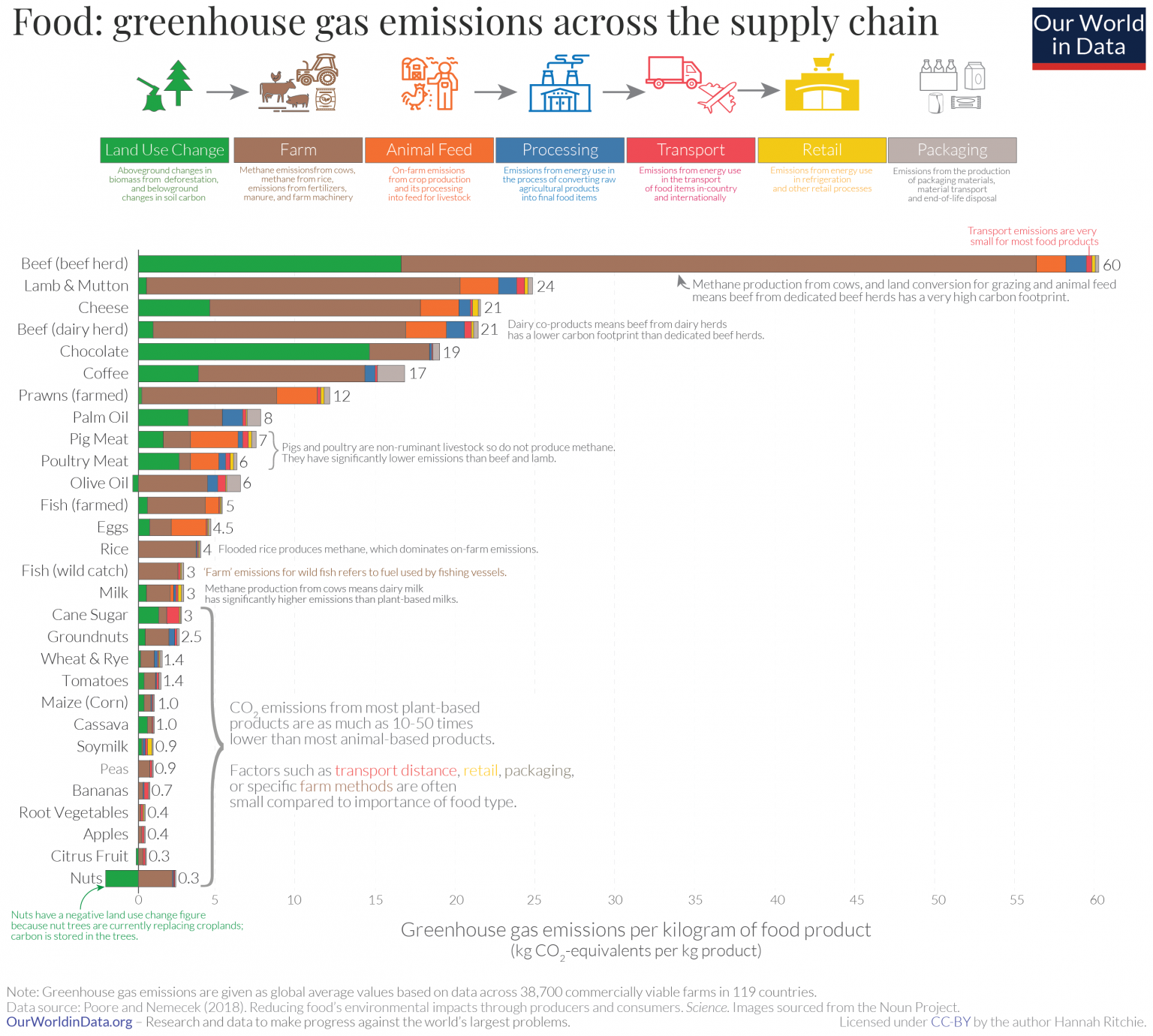

Additionally, some livestock like cows and sheep are ruminants, meaning they burp or fart methane. This might sound a bit funny but it’s estimated that methane emissions from livestock account for about 6-7% of total greenhouse gas emissions. That’s a lot of farts!
Reducing your meat and dairy intake isn’t just a win for the planet, it’s a win for you wallet. Meat and dairy are often the most expensive things in a weekly shop. This is even more true if you’re already choosing more ethical meat like organic. Switching to plant-based sources of protein is a cheaper way to get your nutrition. A recent study published by Sous Vide Guy showed plant-based shoppers saved on average $23 a week compared to their meat-eating counterparts.
This is just the average, if you’re a thrifty plant-hunter you can save much more. Plenteous Veg conducted a price comparison of different plant-based sources of protein and came out with a list of the five cheapest sources of plant-protein:
- Rolled Oats: 0.7 cents per gram/protein
- Dry Beans: 1.1 cent per gram/protein
- Dry Chickpeas: 1.1 cents per gram/protein
- Dry Lentils: 1.6 cents per gram/protein
- Brown Rice: 1.9 cents per gram/protein
And here’s the animal based equivalents for comparison:
- Steak: 4.5 cents per gram/protein
- Ground Beef: 4 cents per gram/protein
- Milk: 2.7 cents per gram/protein
- Ham: 2.6 cents per gram/protein
- Eggs: 2.5 cents per gram/protein
- Chicken: 1.5 cents per gram/protein
By these calculations plant-based protein sources were on average 56% lower in price than animal-based.
Limit High Priced Mock Meats
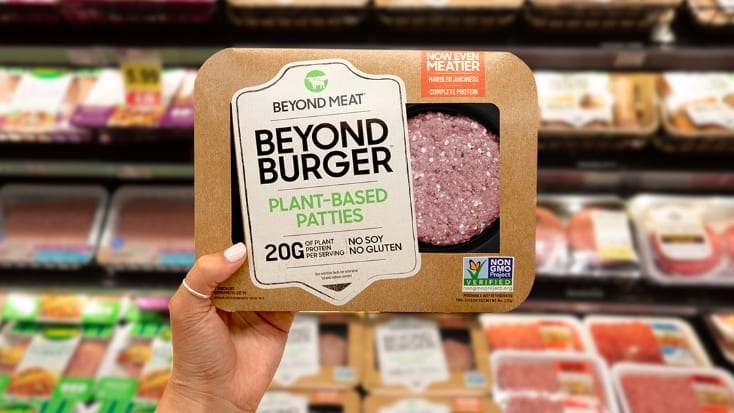

So why does everyone believe plant-based diets are unaffordable? This is mostly due to the rise of mock meats. Companies have rushed to create meat substitutes for those seeking to reduce their intake of animal products. Brands like Impossible Burgers or Beyond Meat have created offerings that are innovative and tasty, but sadly very expensive. A Beyond Burger can be almost two times as expensive as a beef patty.
If you are looking to eat a sustainable plant-based diet, I’d recommend choosing whole food sources of nutrition. This will be cheaper, more sustainable and more nutritious. Who can argue with that.
Beans, Beans, Beans
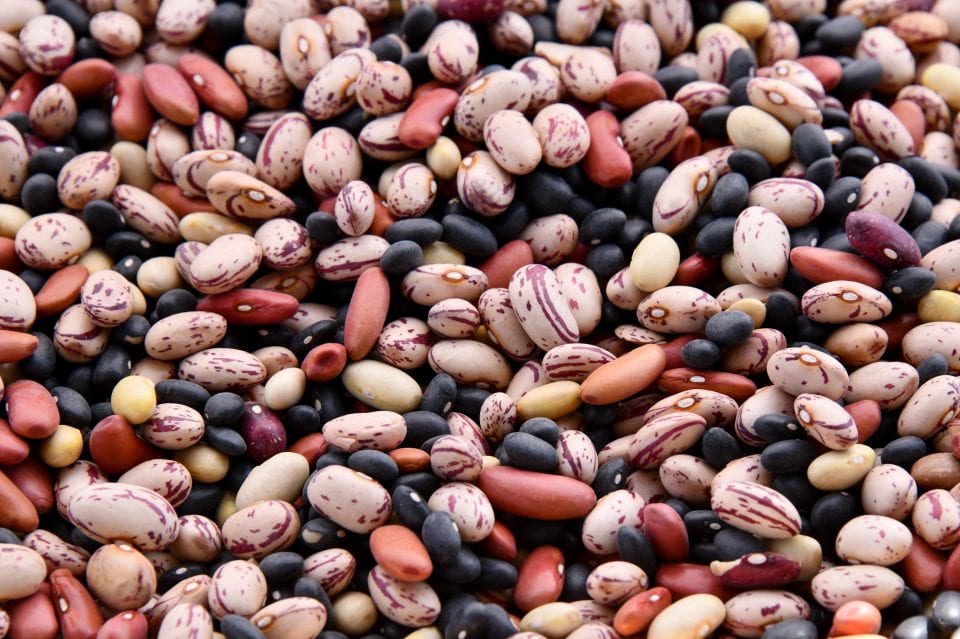

What better whole food than the humble bean. You know that wonderful song you learnt as a kid – “beans, beans the more you eat the more you toot…”. Whilst this is indefinitely true, I’ve found that beans have much more to offer than just their flatulence enhancing capacities.
Beans, or more generally pulses and legumes are incredibly nutritious, cheap and very easy to store. They’re a simple way to add protein and nutrients to any of my meals. When buying legumes try and choose the dried variety, they’re so much cheaper. In general dried legumes and beans cost about 1/2 of what they do canned.
Yes I know dried beans are a little bit of a pain to cook, but my advice is to prepare a large batch of beans and then freeze them into individual portions. Cooking beans from frozen only takes a few minutes and they taste just as good fresh. I normally cook a batch of beans or legumes once every two weeks and make enough to last me the fortnight.
If you are looking for inspiration on how to use your mountains of cooked beans and legumes, don’t fret I’ve got you. Check out the recipe section on the site for lots of beany recipe ideas.
Plan Ahead And Buy In Bulk


If I could coin one phrase it would be “behind every frugal eco cook is a meal planning spreadsheet”. Not the most catchy or awe inspiring of phrases, but true nonetheless. It might sound obvious but planning is one of the most effective ways to eat sustainably on a budget.
Sit down at the beginning of the week (or end of the prior week) and plan out the recipes you’re going to cook for the week and the ingredients you need to buy. Do this whilst looking at what you already have in the cupboard or fridge. Planning meals with ingredients already available in your pantry will help you reduce your weekly shop cost and cut down on food waste. A double whammy for sustainability on a budget.
Planning shops can also help you organise and buy longer-shelf items in bulk. Try extending your meal planning to account for meals for two weeks then hunt for bulk dry items online or in-store. The bigger the quantity the better the discount. I regularly like to buy 5kg bags of pulses and legumes that I use often.
If you are looking for some meal planning and recipe costing templates, I can thoroughly recommend the ones found here.
Buy From Veg Markets Or Farm Schemes
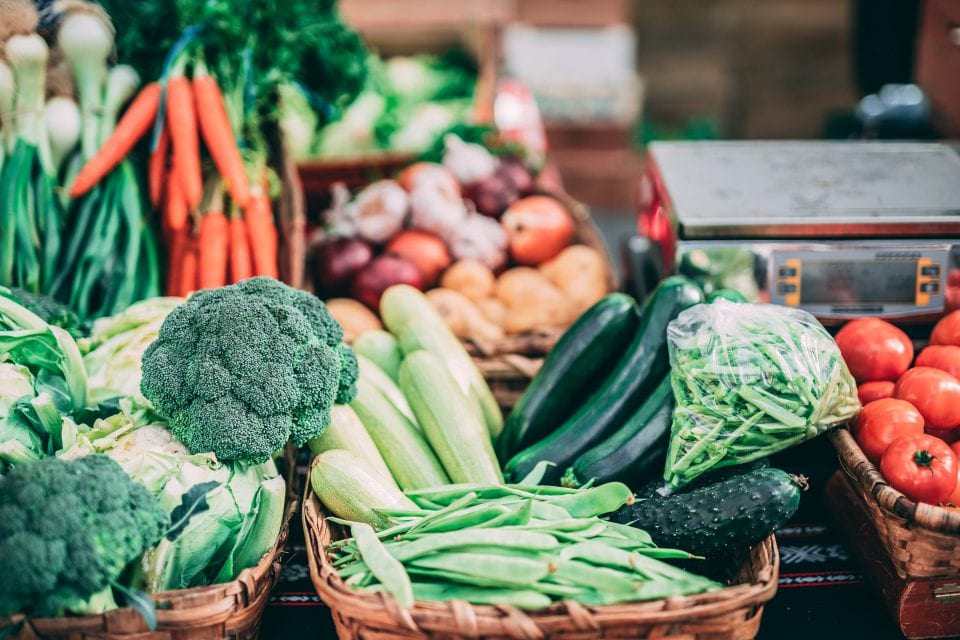

Hunting for fresh produce is always best done at the vegetable market. Note I haven’t said farmers market. In general I like to support farmers markets and buy from traders, however they are relatively pricey. If you are looking for better deals try heading to your local flea market and hunt out the dedicated vegetable stands. You’ll often find these traders hold the freshest produce at the best price. Most are willing to do discounts for large purchases. A little tip that I’ve learnt along the years is to turn up at the market when it’s about to close. Many traders operate on a daily buying schedule and are loath to have any leftover stock. You’re bound to find bargains at the end of the day.
If heading to the market isn’t your thing why not try signing up for a Community Supported Agriculture (CSA) veg box. CSA schemes are wonderful in that they reap benefits for both consumer and farmer. Joining a CSA means you get produce directly from the farm you support. You put aside a weekly or monthly amount that provides the farmer a stable income and in return he/she will send you cost price vegetables directly. This is not only one of the most sustainable ways to purchase fresh fruit and veg but also one of the cheapest. CSA boxes are normally chock full of amazing produce at a fraction of the price.
Eat In Season


Seasonal produce is not only the healthiest and most sustainable but also the cheapest. Eating in season means you get the best value produce. Produce is naturally cheaper in-season as supply is at it’s peak. You’re also avoiding all the costs that go into shipping out of season fruit and veg.
Don’t Stress About Organic
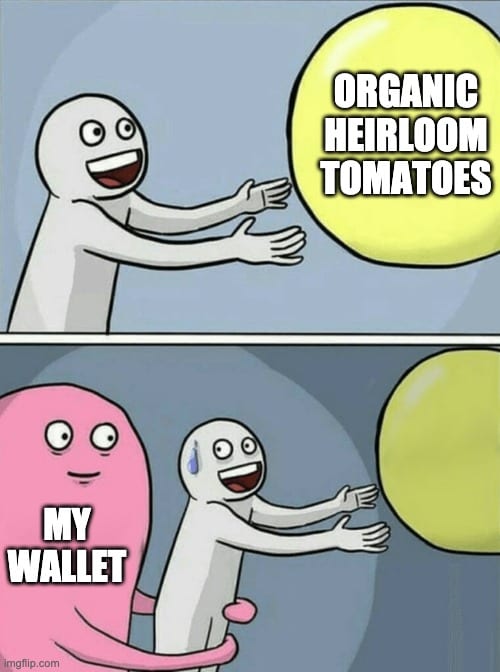

Organic produce is naturally more expensive than their traditional counterparts. Organic producers have to go through a number of stringent and expensive checks to ensure they can be certified. Additionally, they can’t use techniques and materials that traditional farms can. These limitations are meant to ensure that the end product is more sustainable and of a higher quality. However, in reality the jury is still out as to whether organic is better for the environment.
Why is this? Well it’s rather complex and there are different arguments for and against the organic method of production. The main conclusions from studies to date are that organic and traditional farms are pretty much the same environmental impact. Recent studies have actually shown that organic production might be worse for the environment as it uses more land and is less efficient to produce crops. Meaning it produces more greenhouse gas per crop output. If you’re interested in learning more, I find this Kurzgesagt video very easy to understand and informative.
So don’t feel worried if you can’t afford to buy organic. Eating seasonal local vegetables is just as good.
Summary
Eating sustainably on a budget can seem like a daunting task. Maybe you feel the impetus to change your diet but think it’s going to be expensive and will leave you out of pocket. I’ve tried to show in this article that eating sustainably is actually very affordable. Eating sustainably and frugally is also incredibly healthy. By choosing a seasonal plant-based whole-food diet you’ll save your wallet and the planet.
Looking for ultra sustainable, budget friendly recipes? Check out the recipe section on this website.
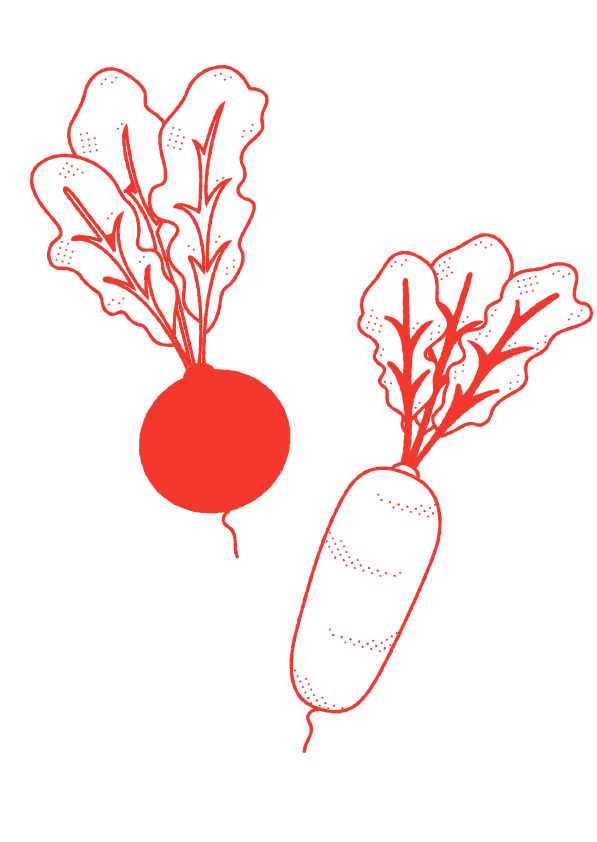



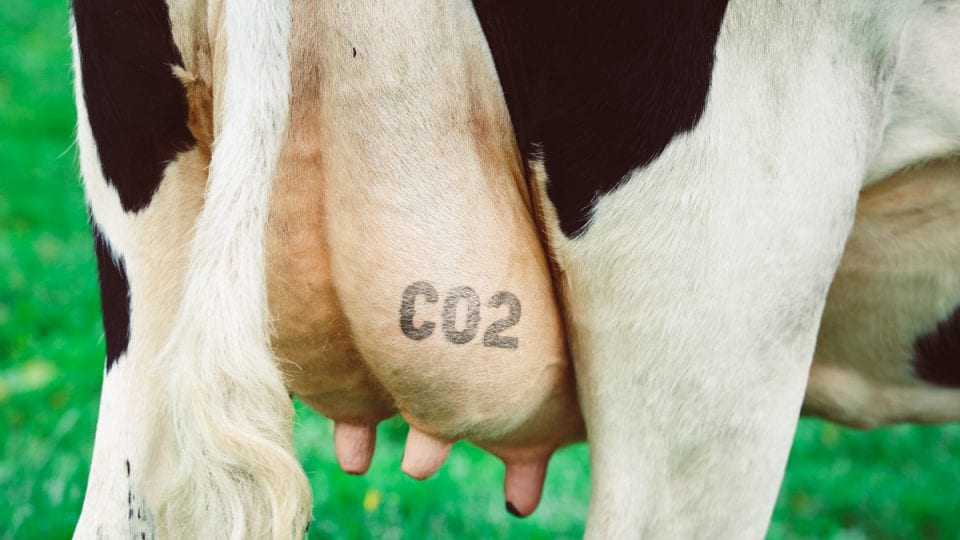
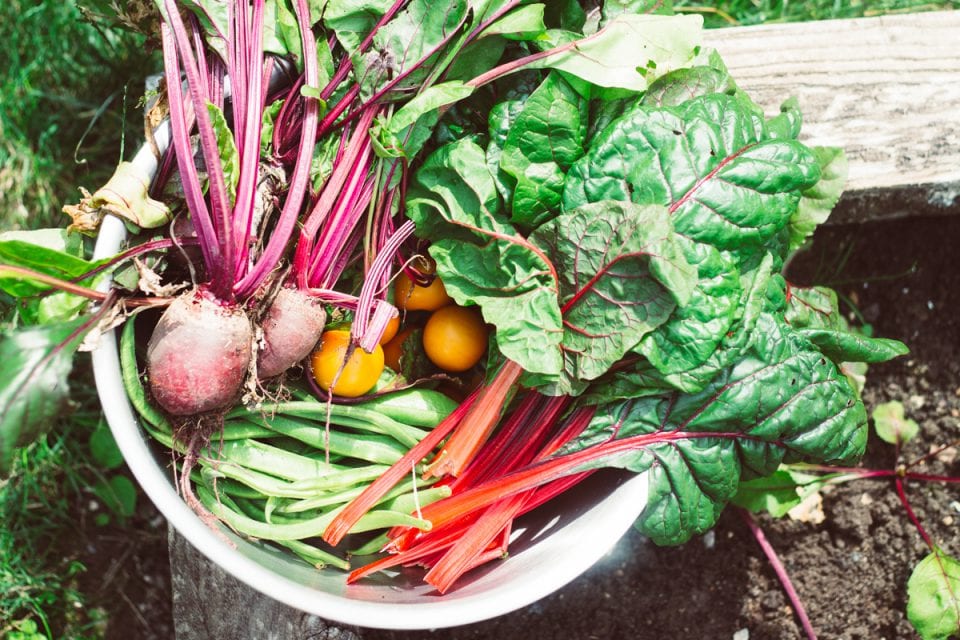
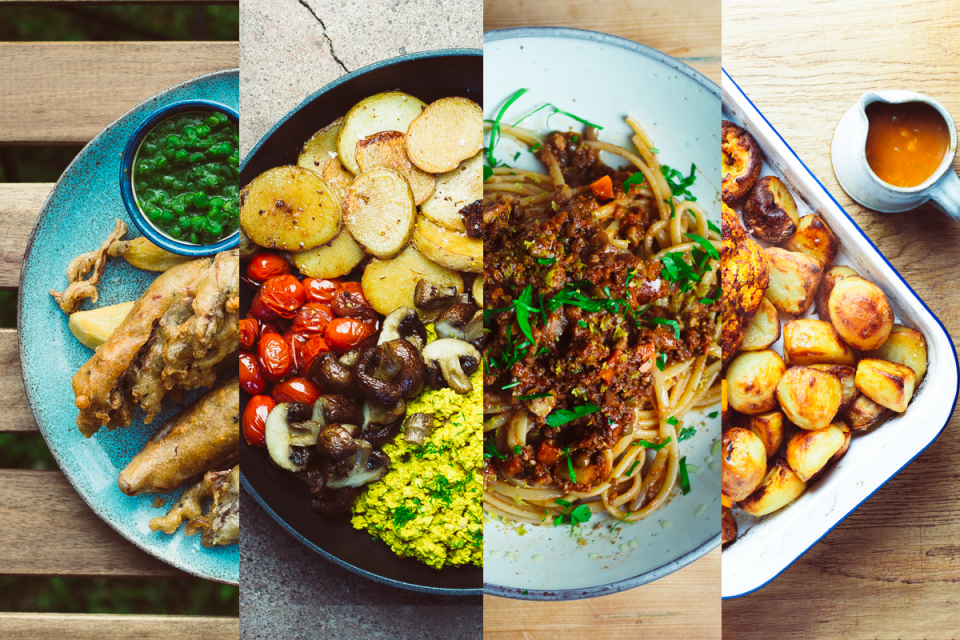
4 Comments
Sandra Velásquez
September 3, 2022 at 9:53 pm
Thank you. for these encouraging information. As a psychologist starting a project on social and environmental conscious cooking at our university, this article gives us useful impulses.
Mary Bartlett
February 1, 2023 at 10:14 pm
Hi Hugo – I stumbled on your site when I was sitting down to a snack
(Butternut squash and grated cabbage) – not a vegetarian – a 70 year old Canadian carnivore boomer. Just had a craving of my two favourite veggies and was curious if this was an acceptable “foodie” pairing so googled it.
So here I am. Am finding your content very interesting and infinitely readable.
Interesting turn of phrase “flatulence enhancing capacities” in relation to beans
many attributes (although I believe the F.E.C. are favoured by the males in my household.). I’ve only spent a few minutes on your site and have a better understanding of many of the current ecological terminology previously I had only a surface knowledge of the meaning. Thank you – expect to be a frequent visitor. Mary B
hugo
February 2, 2023 at 2:20 pm
Wonderfull to hear Mary, glad that my site has inspired you!
Stefan van den Deijssel
June 28, 2023 at 2:42 pm
Hi Hugo,
I’ve got a handy tip to reduce your carbon output from cooking dried beans. After I’ve soaked the beans over night I bring them to a boil with some herbs and garlic. When the beans have boiled for 5 minutes, I take the pan of the heat, cover it in towels and a duvet and leave it for a couple of hours (usually 2 hours). They usually turn out perfectly cooked. I sometimes bring them to a boil before I go to work and use them when I get home. They are never cooked to pieces this way and the energy used to cook them is so much less than when you let them cook until they’re tender.
Do make sure the lid is the pan and then pan is stable.
You don’t want to spill anything.
In The Netherlands this old fashioned way of cooking is called hooikist. It used to be just a box full of hay where you put your pot in to cook for a long time. Kind of slow cooking the old fashioned way! 😄